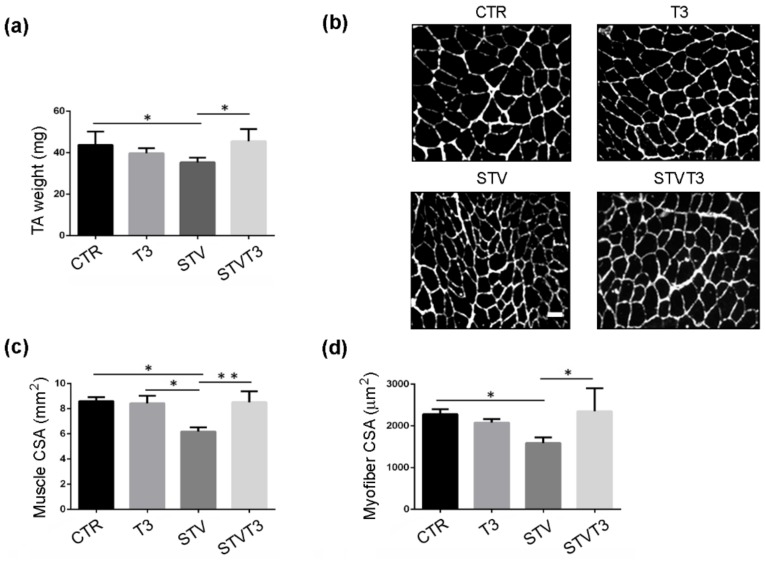In the quest for optimal health, we often overlook the profound connections within our own bodies. Two organs, the heart and the thyroid, play pivotal roles not just individually but in how they interact with each other. Understanding this relationship is key to unlocking a higher level of well-being. Today, we'll delve into the intricate dance between the heart and the thyroid, exploring how practices like "carnivore/ketovore" and dry fasting can harmonize this duo for enhanced vitality.
The Symphony Within: Heart and Thyroid
Our bodies are masterpieces of intricate systems working in unison. The heart, our life-sustaining pump, tirelessly circulates blood, delivering essential nutrients and oxygen to every cell. The thyroid gland, though small and often overlooked, is a powerhouse that regulates metabolism, energy production, and overall hormonal balance.
When these two organs are in sync, we experience optimal health—steady energy levels, a robust metabolism, and a resilient cardiovascular system. However, when there's discord, symptoms manifest that can significantly impact our quality of life.
Thyroid Hormones: The Metabolic Regulators
The thyroid produces hormones like thyroxine (T4) and triiodothyronine (T3), which are crucial for regulating metabolism. These hormones influence how fast or slow our heart beats, how efficiently we burn calories, and how effectively our bodies utilize energy.
An underactive thyroid (hypothyroidism) can lead to a sluggish metabolism, weight gain, and a slow heart rate. On the other hand, an overactive thyroid (hyperthyroidism) can cause a rapid heartbeat, weight loss, and anxiety. The balance of thyroid hormones is, therefore, essential for heart health.
The Heart: More Than a Pump
The heart does more than just circulate blood; it's a responsive organ that reacts to hormonal signals, emotional states, and physiological changes. Thyroid hormones directly affect the heart's function:
- Heart Rate and Rhythm: Thyroid hormones influence the speed and strength of heartbeats.
- Blood Pressure Regulation: They help maintain vascular resistance and blood pressure stability.
- Cholesterol Levels: Thyroid function affects lipid metabolism, influencing cholesterol levels and cardiovascular risk.
An imbalance in thyroid hormones can lead to arrhythmias, hypertension, hypotension, and an increased risk of heart disease.

Important information to piece the puzzle together and another indicator that you need your thyroid health in place during fasts, whereas over-fasting can indeed make this worse, which will make you weaker in the long run and may affect the heart muscle (we don't want that!)
Dry Fasting: Rebalancing the System
Dry fasting, the practice of abstaining from both food and water for specific periods, can be a powerful tool for resetting and rebalancing the body's systems. While it may seem extreme, when done correctly and safely, dry fasting can promote autophagy, reduce inflammation, and enhance hormonal balance.
How Dry Fasting Affects the Thyroid and Heart
- Enhanced Autophagy: Dry fasting accelerates the body's natural cleansing process, removing damaged cells and promoting cellular regeneration. This can improve thyroid function by eliminating dysfunctional thyroid cells and supporting healthy hormone production.
- Hormonal Reset: Fasting influences the hypothalamic-pituitary-thyroid (HPT) axis, which can help recalibrate hormone levels. This reset can alleviate symptoms of both hypo- and hyperthyroidism.
- Reduced Inflammation: Chronic inflammation is a common thread in many thyroid disorders and heart diseases. Dry fasting has been shown to reduce inflammatory markers, easing stress on both the thyroid and the heart.
- Improved Insulin Sensitivity: Fasting enhances insulin sensitivity, aiding in metabolic efficiency. A well-functioning metabolism supports thyroid health and reduces cardiovascular strain.
- Blood Pressure and Cholesterol: Regular dry fasting can help normalize blood pressure and lipid profiles, decreasing the risk of heart disease.
Side note: There are ways to navigate narcissitic and "uneducated" doctors to get the testing you need, and then have someone more well versed in [root causes] analyze it and give you reocmmendations. Feel free to chat with me about this if you're interested.
Why Adrenals need to be taken into consideration too
Long-term hypothyroidism doesn't just slow down your metabolism—it puts a significant strain on your adrenal glands. When your thyroid isn't producing enough hormones, your body compensates by over-relying on the adrenals to keep you going. This constant demand can lead to adrenal fatigue, where the adrenals become burned out and can't function properly. It's a critical connection that's often missed: the more the thyroid underperforms, the more the adrenals are pushed to their limits, trying to supply that missing energy.
Regulating and healing your adrenals is essential before thyroid hormone therapy can truly be effective. If your adrenals are depleted, introducing thyroid hormones might not only be unhelpful—it could make you feel worse. By focusing on restoring adrenal health first, you create a foundation that allows thyroid treatments to work as intended. Once both your thyroid and adrenals are balanced, you're in a better position to explore fasting and other health strategies to further enhance your well-being.
The worst thing someone with adrenal fatigue could do when they fast is eat a high-carbohydrate, low-fat diet; this will make fasting incredibly hard, if not impossible. Remember, for you we want surges of hormetic stress, but not too much stress.
How do you know if youre suffering adrenal issues and not thyroid? Coffee really messes you up. You are always tired. Etc.
Points for Consideration with the Thyroid
- Prioritize Quality Proteins: After fasting (but mostly once you gradually re-awaken your digestive organs), consume high-quality proteins from sources like grass-fed meats and wild-caught fish to support thyroid hormone production.
- Carbs are required to supply energy to the brain and thyroid (the brain needs glucose and can't run on just ketones). Low-carb diets have been shown to reduce T3 levels. Just don't go crazy on carbs. Carbs also lower the need for adrenals to be pumping (very important).
- Include Healthy Fats: Fats from avocados, olive oil, and omega-3-rich foods aid in hormone synthesis and reduce inflammation.
- Limit Goitrogens: Be cautious with foods that can interfere with thyroid function, such as soy and certain cruciferous vegetables, especially if consumed raw.
- Stress Management: Chronic stress disrupts hormonal balance. Practices like meditation, deep breathing, and gentle yoga can alleviate stress.
- Regular Physical Activity: Engage in moderate exercise to boost cardiovascular health and support metabolic function.
- Adequate Sleep: Prioritize sleep to allow the body to repair and regulate hormones effectively.
Final Reflections
Our modern lifestyles often disconnect us from natural rhythms, leading to hormonal imbalances and health issues. Dry fasting is a practice that can help us realign with these rhythms, giving the body a chance to heal and restore.
By embracing periods of rest from constant consumption, we allow the thyroid and heart to recalibrate. This doesn't just alleviate symptoms but addresses root causes, promoting long-term health.
I often talk to people who have cured 'heart pain' following long covid or vaccination-induced complications by extended fasting, which means there are more mechanisms at play than just the thyroid. So keep that in mind.
The connection between the heart and the thyroid is a testament to the body's interconnectedness. By understanding and respecting this relationship, we can take proactive steps to enhance our health.
Dry fasting, when approached mindfully, offers a pathway to rejuvenation and balance. It's not just about abstaining from food and water; it's about embracing a holistic approach to well-being.
Remember, your health journey is personal. What works for one may not work for another. Always honor your body's signals and seek guidance when needed. Good luck on your dry fasting journey.



